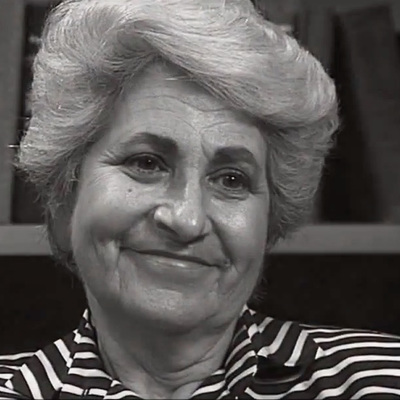“I observed the best of human nature and also the worst. I remember this happened a few times…one of the girls was an epileptic. Every time she had an attack…we had to quickly hide her. And we were able to take care of her until almost the end of ’44…those are the kind of things which are…worth remembering, to see some of the good in people.”
From the age of six, Rosemary remembers being forbidden to go to public school, shop, go to movies, or swim in public pools—everything was prohibited, because she was Jewish. Her schooling up to third grade was in one room with eight grades taught by a Jewish schoolteacher.
Kristallnacht, November 9, 1938, was the turning point for Rosemary and her family. Her father was arrested, and then thugs entered the family business and home, which was above the business, and destroyed everything inside. One of the thugs called over to her, “Hey Rosemary, don’t worry. We’re not going to hurt you or your mother.” They knew her, and she knew them.
Rosemary and her family moved to Holland with extended family but were put into camps there, including Westerbork, before being transported to the Theresienstadt concentration camp in Czechoslovakia. At Theresienstadt, Rosemary and her mother endured the neglect, humiliation, starvation, and separation from her father and brother, who were both killed. Survival in the camp came from Rosemary’s determination to work hard to learn a skill and become able to take care of herself after the war. She worked in the tailoring shop where she, “…worked like a demon…” and because of this, her overseer had her pulled off a transport to Auschwitz—a divine intervention—according to Rosemary.

